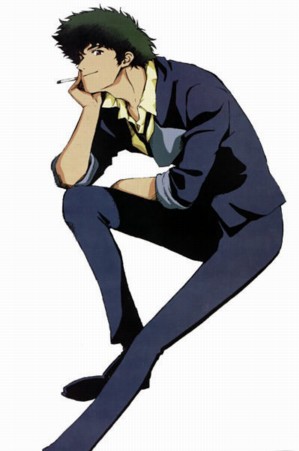Surbrook’s Stuff is fairly well known for its huge collection of character adaptations, most of which were written by myself—the rest being donated by other HERO System fans and gamers. I’d like to think I do a good job, a belief borne out by the number of positive emails I’ve received.
My intent with these adaptations is two-fold: to be as true to the source material as possible, and to be as complete as possible. Thus, each adaption often has comments indicating why I chose a particular characteristic or value, or why I built a power the way I did. I don’t attempt to squeeze characters into a set point value, either. I simply build them and then total them up. Thus, the point totals range from around 36-points (Deadhead from Wild Cards) to over 1500-points (such as some of the cast of Dragon Ball Z). I will admit to toning down some of the more excessive adaptations (such as Battle Angel Alita or the aforementioned cast of Dragon Ball Z, for example) in order to have a more “reasonable” and “playable” character design.
Adaptations are written to be as cross-genre as possible. This means I don’t use setting specific rules or limitations. Everything is as "vanilla" HERO System 5th or 6th Edition as I can get it. In addition, all character sheets updated to HERO System 5th or 6th Edition will use the standard character sheet layout described in the HERO System writer’s guidelines (at www.herogames.com). These character sheets are presented with the PRE (pre-formatted) tag, which allows me to A) match the writer’s guidelines format, and B) is the easiest for me to edit. However, for those of you who own Hero Designer 3rd Edition, I’m now including the character’s HD file with each character sheet—so you can easily edit and export the character into any format you like.
Presentation
All characters are built on three broad scales–Normal, Hero, and Superhero. Normals are, naturally, mostly normal characters, usually used in campaigns as background Non-Player Characters, as Dependent Non-Player Characters, or as otherwise everyday people. Heroes are a step above Normals, but usually are still within the realm of the “real world”. They are often cinematic action heroes, equal to, or more powerful than most HERO System heroic-level Player Characters. In campaigns they can be used as Player Characters, as rivals to the PCs, as foes, or as templates on which to develop original characters. Superheroes tend to be, but don’t have to be, comic book costumed characters. They can also be high-end cinematic action heroes, wuxia-styled martial artists, or epic-level fantasy characters. The most powerful superheroes are Galactic Superheroes, who are characters capable of action on an almost cosmic scale. In any case, all 6th Edition characters are built on a number of base points that follows a fairly simple progression–
- Normal
-
- Standard Normal (25 points)
- Skilled Normal (50 points)
- Competent Normal (100 points)
- Standard (175 points)
- Low-Powered (300 points)
Characters built using 5th Edition will use somewhat different point values. They may also use Normal Characteristic Maxima (in which Characteristics over a certain value cost double) and may (or may not) pay for their equipment. 6th Edition characters don’t worry about Normal Characteristic Maxima but may (or may not) pay for equipment. Normally, Normal and Heroic-level characters don’t pay for equipment, Superheroes do. I also disregard any rules regarding maximum points of Complications in order to make it easier for you, the reader, to customize the character as you wish. Naturally, some characters may have more points in Complications than they use, so they will have unspent points you can use to further customize them. Any characters who don't balance will have an Experience Bonus.
All animals, creatures, and monsters—regardless of point total—are built on a 175-point base and receive full points for all Complications.
Characters in the archive used to include a full set of 0-point “Every Man Skills” with each character, but recently I have decided to stop doing so. Mainly due to the vagaries of what constitutes an “Every Man“ Skill, which can vary from setting to setting and genre to genre. However, after reading The Ultimate Skill, I have concluded that the following list can be presumed to be part of every character sheet—
Basic Every Man Skills
Acting 8-
AK: (local area) 8-
Climbing 8-
Concealment 8-
CuK: Native Culture 11-
Deduction 8-
KS: (choice) 8-
KS: (choice) 8-
KS: General Knowledge 11-
Language (native)
Paramedics 8-
Persuasion 8-
PS: (choice) 8-
PS: Perform Basic Chores And Menial Tasks 11-
Shadowing 8-
Stealth 8-
TF: (choice)
Most character sheets will still list the native language and a basic TF. Animals get a similar set of “Every Creature” Skills which is listed in the Creature Adaptations.
Errors
Due to the size of this archive, and the number of characters in it, errors may (and will) occur. If you spot an error, feel free to email me. If the error is in one of my designs, I’ll fix and repost it. If it’s not, I’ll change it if it’s a serious error, but not if it’s a design disagreement (such as how powerful someone is written up to be). If you disagree on how a character was built, do your own and send that in!
Submissions and Requests
I do accept write-ups from other people, and will post them here if they are well-designed and presented. I've created a page detailing how to send submissions. Please take a look: How To Submit Characters To The Archive. On the other hand, I don’t take requests. One reason is that I have a huge backlog of designs I am working on, the other is, I can’t guarantee I know anything about the character or series you want (People used to ask me about character sheets for Sailor Moon, and I kept telling them: “I don’t know anything about Sailor Moon!”).
